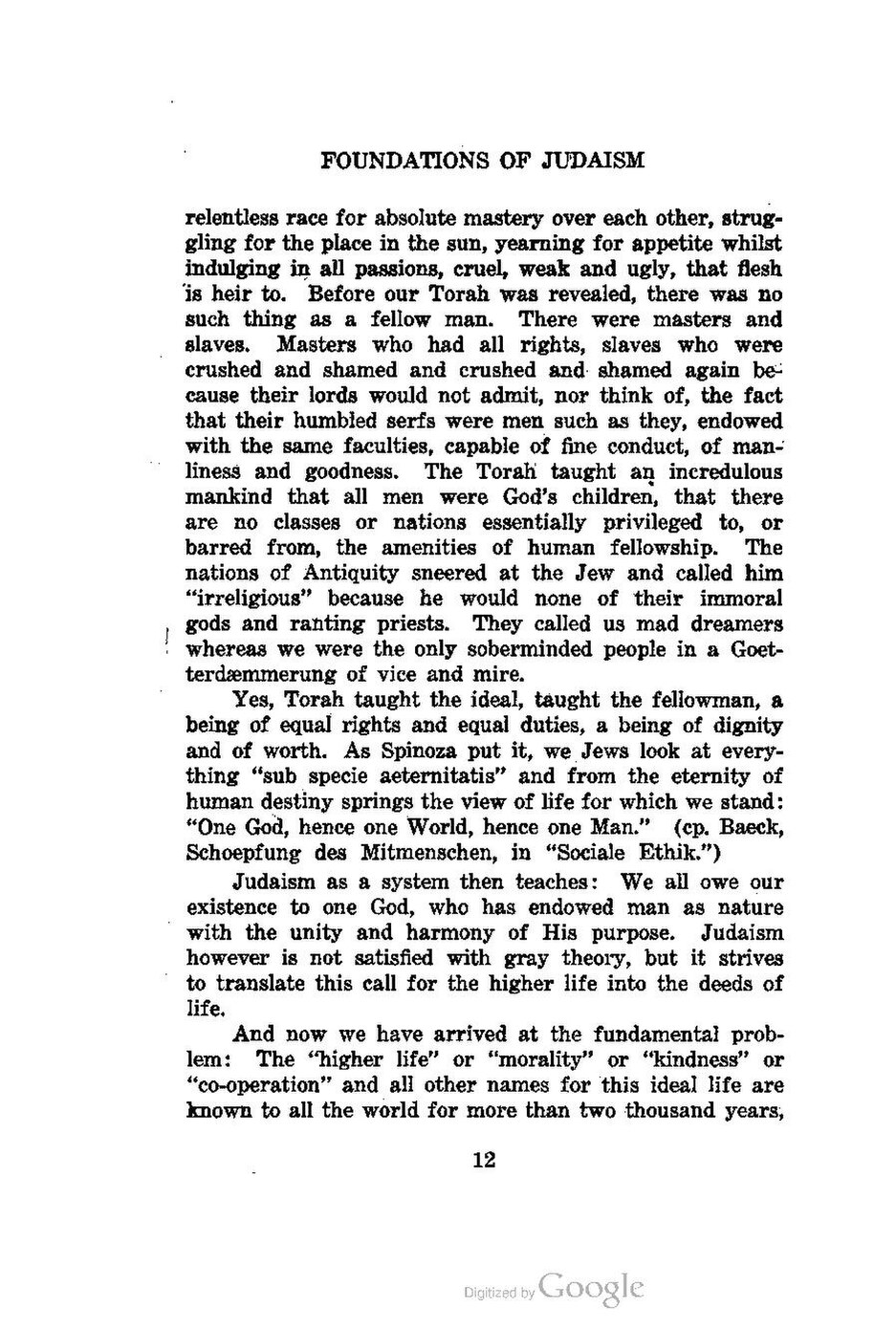FOUNDATIONS OF JUDAISM
relentless race for absolute mastery over each other, struggling for the place in the sun, yearning for appetite whilst indulging in all passions, cruel, weak and ugly, that flesh is heir to. Before our Torah was revealed, there was no such thing as a fellow man. There were masters and slaves. Masters who had all rights, slaves who were crushed and shamed and crushed and shamed again because their lords would not admit, nor think of, the fact that their humbled serfs were men such as they, endowed with the same faculties, capable of fine conduct, of manliness and goodness. The Torah taught an incredulous mankind that all men were God's children, that there are no classes or nations essentially privileged to, or barred from, the amenities of human fellowship. The nations of Antiquity sneered at the Jew and called him "irreligious" because he would none of their immoral gods and ranting priests. They called us mad dreamers whereas we were the only soberminded people in a Goetterdæmmerung of vice and mire.
Yes, Torah taught the ideal, taught the fellowman, a being of equal rights and equal duties, a being of dignity and of worth. As Spinoza put it, we Jews look at everything "sub specie aeternitatis" and from the eternity of human destiny springs the view of life for which we stand: “One God, hence one World, hence one Man.” (cp. Baeck, Schoepfung des Mitmenschen, in "Sociale Ethik." )
Judaism as a system then teaches: We all owe our existence to one God, who has endowed man as nature with the unity and harmony of His purpose. Judaism however is not satisfied with gray theory, but it strives to translate this call for the higher life into the deeds of life.
And now we have arrived at the fundamental problem: The "higher life" or "morality" or "kindness" or "co-operation” and all other names for this ideal life are known to all the world for more than two thousand years,
12
